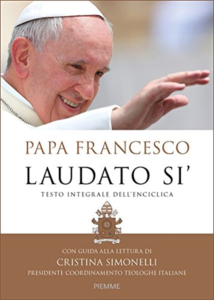
A year ago, the Italian Constitution enshrined the protection of the environment, ecosystems and biodiversity as an asset of humanity for future generations
The conference of the Italian Association for Sustainable Development (ASviS) on ‘Constitution, environment and future generations: one year on, where are we?’ is being held today in Rome. “The reformed Article 9, with its explicit reference to ‘the interest of future generations’, puts us on our guard: mind you, protecting the environment may require great sacrifices, but it would be wrong and even illegitimate not to face them because we would do enormous damage to those who will come after us”. These are the words of Giuliano Amato, former president of the Consulta, who spoke at the ASVIS conference to reiterate that one year after the introduction of the formula ‘in the interest of future generations’ we are not living up to that commitment: ‘The feeling we are giving our children and grandchildren is that we are not guaranteeing sufficient protection of their interests’ (Source: La Repubblica 22/02/2023).

Image: https:animalisti.it
The ‘integrated’ Article 9 introduces another meaning of environment and ‘represents a qualitative leap from both the previous Article 9 – environment = beauty – and Article 32, which protects the health of citizens. For the first time, the reformed Article 9 protects the environment as a good of mankind, in the sense defined by the Kyoto Protocol: it is the air we breathe, a set of balances on which the survival of the species depends, i.e. a priority of mankind’.
The integration of Article 9 in terms of ‘sustainable development’ refers back to the so-called Brundtland Report of 1987 entitled ‘Our Common Future’, whose principles of intergenerational and intragenerational equity attracted the attention of the international community and led to new developments in the concept of sustainability, which was extended not only to the environmental dimension, but also to the social dimension.

Photo: https://agente0011.it/la-sostenibilita-e-donna-gro-harlem-brundtland/
Norwegian physician, politician and environmentalist, Gro Harlem Brundtland first systematised the concept of sustainable development. In 1983, she was appointed President of the United Nations World Commission on Environment and Development. In 1987, she drafted the famous Brundtland Report (Our Common Future), containing a definition of sustainable development that combines the expectations of well-being and economic growth with respect for the environment and the preservation of natural resources.
With today’s conference ASVIS) gives us a valuable opportunity to discern our commitment to sustainable development that allows “the present generation to meet its needs without compromising the ability of future generations to meet their own needs.”
WE RENEW OUR COMMITMENT TO FUTURE GENERATIONS
within the framework of the Congregation’s Position on Integral Ecology, our adherence to the Laudato Sii Movement and the processes promoted by our List of…. Actions… born on the occasion of the #gratiagreta let us make peace with the Earth and with each other.

